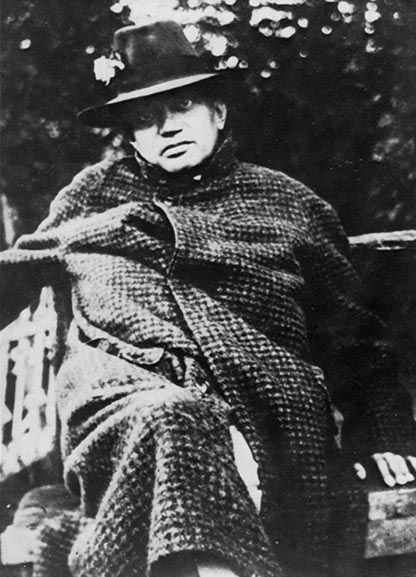Elbocsátó, szép üzenet (Hungarian)
Törjön százegyszer százszor-tört varázs:
Hát elbocsátlak még egyszer, utólszor,
Ha hitted, hogy még mindig tartalak
S hitted, hogy kell még elbocsáttatás.
Százszor-sujtottan dobom, ím, feléd
Feledésemnek gazdag úr-palástját.
Vedd magadra, mert lesz még hidegebb is,
Vedd magadra, mert sajnálom magunkat,
Egyenlőtlen harc nagy szégyeniért,
Alázásodért, nem tudom, miért,
Szóval már téged, csak téged sajnállak.
Milyen régen és titkosan így volt már:
Sorsod szépítni hányszor adatott
Ámító kegyből, szépek szépiért
Forrott és küldött, ékes Léda-zsoltár.
Sohase kaptam, el hát sohse vettem:
Átadtam néked szépen ál-hitét
Csókoknak, kik mással csattantanak
S szerelmeket, kiket mással szerettem:
És köszönök ma annyi ölelést,
Ám köszönök mégis annyi volt-Lédát,
Amennyit férfi megköszönni tud,
Mikor egy unott, régi csókon lép át.
És milyen régen nem kutattalak
Fövényes multban, zavaros jelenben
S már jövőd kicsiny s asszonyos rab-útján
Milyen régen elbúcsúztattalak.
Milyen régen csupán azt keresem,
Hogy szép énemből valamid maradjon,
Én csodás, verses rádfogásaimból
S biztasd magad árván, szerelmesen,
Hogy te is voltál, nemcsak az, aki
Nem bírt magának mindent vallani
S ráaggatott diszeiből egy nőre.
Büszke mellemről, ki nagy, telhetetlen,
Akartam látni szép hullásodat
S nem elhagyott némber kis bosszuját,
Ki áll dühödten bosszu-hímmel lesben.
Nem kevés, szegény magad csúfolását,
Hisz rajtad van krőzusságom nyoma
S hozzámtartozni lehetett hited,
Kinek mulását nem szabad, hogy lássák,
Kinek én úgy adtam az ölelést,
Hogy neki is öröme teljék benne,
Ki előttem kis kérdőjel vala
S csak a jöttömmel lett beteljesedve.
Lezörögsz-e, mint rég-hervadt virág
Rég-pihenő imakönyvből kihullva,
Vagy futkározva rongyig-cipeled
Vett nimbuszod, e zsarnok, bús igát
S, mely végre méltó nőjéért rebeg,
Magamimádó önmagam imáját?
Kérem a Sorsot, sorsod kérje meg,
Csillag-sorsomba ne véljen fonódni
S mindegy, mi nyel el, ár avagy salak:
Általam vagy, mert meg én láttalak
S régen nem vagy, mert már régen nem látlak.
1913 | Source of the quotation | http://mek.niif.hu |
 |
|
A graceful message of dismissal (English)
Let the spell break a hundred-and-first time
that has broken a hundred: I dismiss you yet again
for ever, if you believed I still held you dear,
and believed one more dismissal stood in line.
A hundred-times-wounded, here, I throw at you
the sumptuous kingrobe of my forgetting you.
Wear it, for the weather will come colder,
wear it, for I am sorry for us both,
for the huge shame of such unequal fight,
for your humiliation, for I don’t know what,
and for you I am sorry, for you alone here. How long, how silently it has been like this:
how often, to reassure you in your fate
by dazzling favours, you were given a golden
Leda-psalm, sent white-hot to the fairest
of the fair. I received nothing, withdrew nothing:
it was my grace to give you false belief
in kisses “wont to wanton otherwhere”
and loves I was “wont to love otherly”:
and I am grateful for all these embraces,
and despite everything I thank such wisps
of Leda-gone as any man can thank
on leaving behind him an old listless kiss. And for how long I have not sought you out
in gritty past, in muddy present, how long
since I took leave of you, on that slave-track
where your sex steps into its circumscribed fate.
For how long now I have looked for nothing
but what you might keep of my splendid self,
of the magical attributes my verse drew youwards,
so that you can find consolation, lonely, loving,
in having existed too, as well as the man
who left a world unclaimed at last to hang
adornments from his store upon a woman. >From this proud breast “wont to be gaping great”,
I had to see your stylish, majestic fall –
oh not the bitch-revenge of a jilted piece
who sets a raging ambush for her venging-mate:
not anything to mock your poor scant self
since you go branded by my Croesushood
and your once-been-mine was a belief for you,
to pass so deftly none can sense or tell,
the one in whom I planted my embrace
so that she too might take delight in it,
she who had been the merest question-mark
and needed me alone to find fulfilment. Now will you frou-frou down, well-wilted flower
fallen from its dust-smothered prayer-book,
or will you rush about and rub threadbare
your borrowed halo, your sad bridle’s power,
and what at last trembles to its blessing in a girl,
my own self-idolizing act of prayer?
I ask Fate now to ask your fate to leave
thinking it can twist round the fate in my stars,
and I am easy whether flood or fire devours
you, for through me you live, I saw you first
and you are long dead long out of my eyes. |





